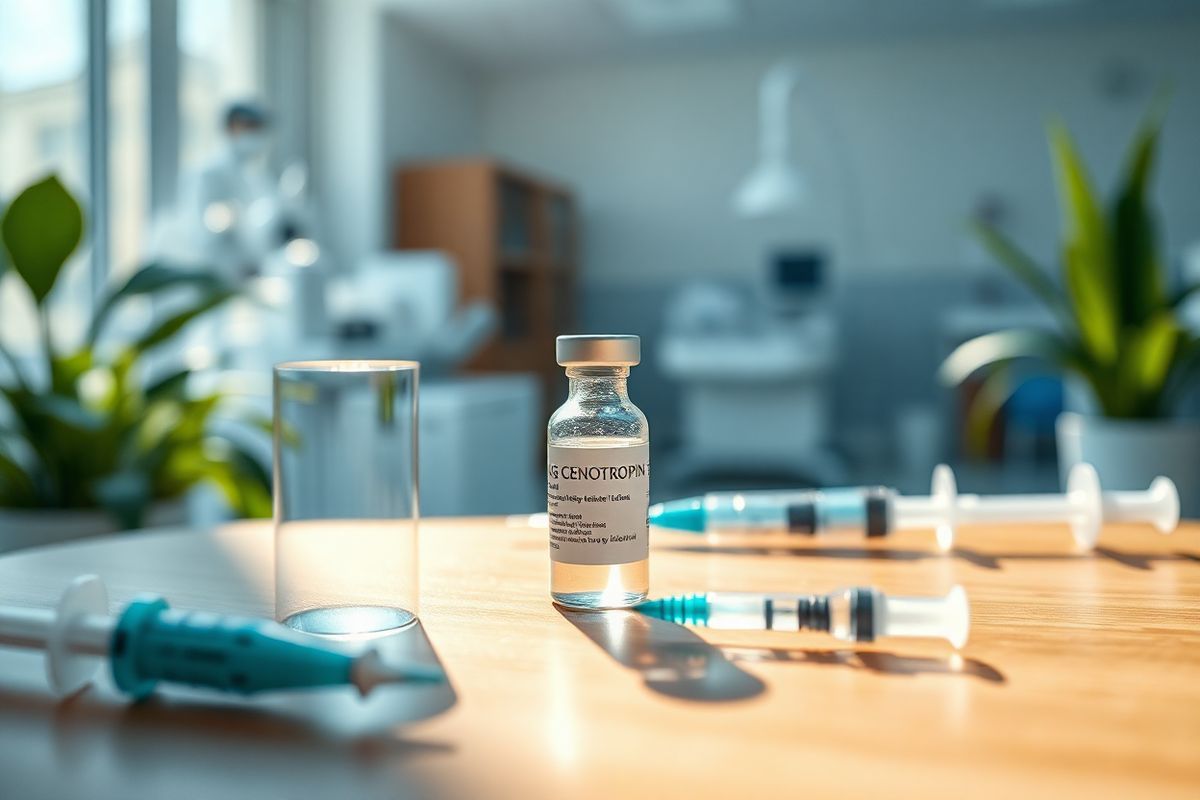Table of Contents
Exploring the Side Effects of Genotropin: What to Watch For

While Genotropin can offer significant therapeutic benefits, it is not without risks. Understanding the potential side effects is crucial for anyone considering its use.
Common Side Effects
- Injection Site Reactions: Pain, swelling, or redness at the injection site are common and typically resolve quickly.
- Headaches: Some patients may experience headaches, which can range from mild to severe.
- Joint and Muscle Pain: Discomfort in the joints or muscles can occur, especially when beginning treatment or increasing the dosage.
Serious Side Effects
- Edema: Swelling due to fluid retention can occur, particularly in the hands and feet.
- Increased Risk of Diabetes: Genotropin can affect insulin sensitivity; hence, patients should monitor blood glucose levels, especially those with a history of diabetes.
- Intracranial Hypertension: Rarely, patients may experience increased pressure in the skull, leading to vision problems and headaches.
- Hypothyroidism: Changes in thyroid function may occur, requiring monitoring of thyroid hormone levels.
Patients should report any unusual symptoms to their healthcare provider immediately. Regular monitoring and communication with a healthcare professional can help mitigate the risks associated with somatropin therapy.
The Cost of Genotropin: Budgeting for Your Somatropin Treatment
The cost of Genotropin can vary widely based on several factors, including the dosage, insurance coverage, and pharmacy location. Typically, the cost ranges from $1,500 to $3,000 per month.
Factors Affecting Cost
- Dosage: Higher dosages will naturally lead to increased costs.
- Insurance: Many insurance plans cover somatropin for approved indications, but coverage can vary. Patients should check with their insurance provider to understand their specific coverage.
- Pharmacy: Prices may differ between pharmacies, so shopping around can be beneficial. Some pharmacies may offer discounts or patient assistance programs.
Financial Assistance
For those struggling with the costs, several patient assistance programs are available through pharmaceutical companies and non-profit organizations. These programs can help reduce out-of-pocket expenses and make treatment more accessible.
Therapeutic Applications of Genotropin: How Somatropin Benefits Different Conditions
Genotropin is primarily used to treat growth hormone deficiencies, but its therapeutic applications extend to several other conditions.
Growth Hormone Deficiency
The most common use of somatropin is in children and adults with growth hormone deficiency. Treatment can help improve growth rates in children and restore normal metabolic functions in adults.
Turner Syndrome
Turner syndrome, a genetic disorder that affects females, is characterized by a range of developmental issues, including short stature. Genotropin can help improve height and overall physical development in affected individuals.
Chronic Kidney Disease
Children with chronic kidney disease often experience growth delays. Somatropin therapy can help enhance growth and improve overall health outcomes in these patients.
Muscle Wasting Conditions
Genotropin has been used in patients with muscle wasting conditions, such as HIV/AIDS, to help increase lean body mass and improve physical performance.
Anti-Aging and Athletic Performance
While off-label use of somatropin in anti-aging and athletic performance enhancement is prevalent, it is essential to note that such practices can pose significant health risks and are often prohibited in competitive sports.
Frequently Asked Questions (FAQ)
What is Genotropin used for?
Genotropin is primarily used to treat growth hormone deficiencies in children and adults, Turner syndrome, chronic kidney disease, and conditions leading to muscle wasting.
How is Genotropin administered?
Genotropin is administered through subcutaneous injections, with dosages tailored to individual patient needs.
What are the side effects of Genotropin?
Common side effects include injection site reactions, headaches, joint and muscle pain, while serious side effects can include edema, increased risk of diabetes, and intracranial hypertension.
How much does Genotropin cost?
The cost of Genotropin typically ranges from $1,500 to $3,000 per month, depending on dosage and insurance coverage.
Is there financial assistance available for Genotropin?
Yes, many pharmaceutical companies offer patient assistance programs to help reduce the cost of Genotropin for eligible patients.
References
-
Dunn, M. R., Li, D., Emerson, M. A., Thompson, C. A., Nichols, H. B., Van Alsten, S. C., Roberson, M. L., Wheeler, S. B., Carey, L. A., & Hyslop, T. (2024). A latent class assessment of healthcare access factors and disparities in breast cancer care timeliness. PLOS Medicine. https://doi.org/10.1371/journal.pmed.1004500
-
Ghaffari, P., Bismuth, J., & Kamath, S. (2024). Identification and development of TRPM4 antagonists to counteract neuronal excitotoxicity. iScience. https://doi.org/10.1016/j.isci.2024.111425
-
Ratti, A., & Morselli, E. (2024). HuD regulates apoptosis in N2a cells by regulating Msi2 expression. PLOS ONE. https://doi.org/10.1371/journal.pone.0315535
-
Liu, Z., & Zeng, H. (2024). Associations between dietary mycotoxins exposures and risk of hepatocellular carcinoma in a European cohort. PLOS ONE. https://doi.org/10.1371/journal.pone.0315561



